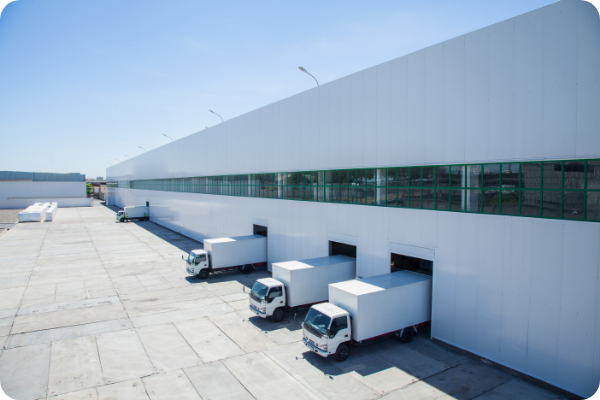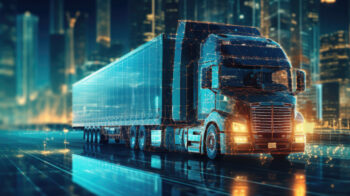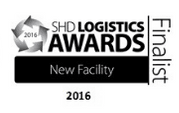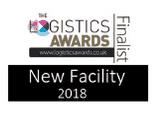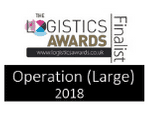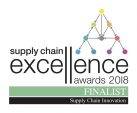The Future of HGV's
Heavy goods vehicles (HGVs) that run on diesel fuel are major contributors to air pollution and are not going to be viable in the long term. The UK Government has pledged that all new HGVs sold in the UK will be zero emissions by 2040. Air quality and the need to reduce reliance on fossil fuels mean that both manufacturers and logistics operators have to find alternatives. Many believe electric power is the future. Major improvements in battery technology have made it possible to reach a range of 500km on one charge. A potential long-term solution for long-haul HGVs is direct electrification, particularly using an electric road system (ERS). This could take up to 20 years to become a reality. More about electric HGVs here.
What about hydrogen-powered HGVs?
Hydrogen may have a role to play in HGVs and other transport modes such as trains, buses, ferries and ocean-going shipping. Hydrogen is produced by separating it from other elements in water and fossil fuels. It can be compressed into gas or liquefied to make it easier and cheaper to transport. However, while hydrogen is emission-free at the point of use, it needs the energy to produce it. Hydrogen fuel comes in three different types:
- Green is the cleanest form. It is made by using electricity from renewable sources (solar or wind) to split water molecules into hydrogen and oxygen. This is the future: carbon-free hydrogen.
- Blue is low-carbon hydrogen: during the steam reforming process, a high proportion of carbon generated is captured and stored underground.
- Grey is generated from natural gas or methane, also through steam reforming, producing some carbon emissions. Grey hydrogen makes up 90% of hydrogen production globally.
The major benefit of hydrogen over electricity is its flexibility. It can fit into existing infrastructure easily. A hydrogen HGV can be refuelled as quickly as a diesel truck and the operating distance is similar or better. The downside is that hydrogen is much more energy intensive than electricity to produce. This not only pushes up the price; hydrogen power continues to contribute to negative environmental impact.
The Current State of Sustainable Freight Transport
In the UK and Europe, the move towards hydrogen is gathering pace. The UK Government published its strategy to support innovation and stimulate investment in hydrogen power in 2021. The aim is to produce blue hydrogen at scale to create a market. Over time, green is expected to replace blue hydrogen. The latest budget constraints may delay the implementation of this plan. According to the Centre for Sustainable Road Freight, it is unlikely that the necessary facilities for manufacturing blue hydrogen could be built in time for 2030 or even 2040 or 2050. More details about hydrogen power here.
Some companies like Volkswagen and Tesla are embracing battery-electric trucks because they are cheaper, and the charging infrastructure is more developed. Hyundai Motor, Daimler Trucks and Volvo Trucks are leaning towards hydrogen-powered fuel cells for longer distances and faster refuelling. The answer may be a hybrid, a dual-energy system. A hydrogen backup avoids trucks having to recharge batteries whilst on the road.
Volvo Trucks, which already makes battery-electric HGVs, says hydrogen fuel cell technology will best fit lorries that drive very long distances, have very heavy loads or do not have reliable access to electric charging.
Advantages and costs of hydrogen-powered HGVs vs electric.
- Hydrogen fuel cell technology is reliable and proven.
- The hydrogen refuelling experience is quick, simple and familiar.
- Large distances can be covered without delays in refuelling or charging.
- Refuelling stations are becoming more accessible and convenient
Cost comparisons between electric or hydrogen power solutions are difficult to make without a clear understanding of the logistics within a supply chain. The accessibility of a distribution centre, the location, size and budget limitations will all impact the choice. Any decision will depend on medium-term needs and future sustainability goals.
Understanding the total cost of ownership (TCO), which comprises all vehicle lifetime costs, is the base for a calculation of alternatives. TCO includes capital expenditure, fuel operational costs, maintenance, changes to the infrastructure required as well as all taxes, levies and road charges.
Only emissions-free vehicles will be acceptable as we progress towards full decarbonisation of the road freight sector.
The Supply Chain Consulting Group (SCCG) can help you to understand how electric or hydrogen-powered HGVs can be used in your business. We can help you to understand the options and how to improve transportation operations in line with emission regulations. SCCG’s experienced consultants can provide professional advice on different possible HGV solutions that would suit your organisation. Our directors are experienced logistics and transportation consultants who have worked closely with clients from all sectors and countries to improve or adopt knowledge of new technologies towards “Green Transportation”.

